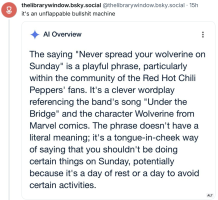Deepfake audio is just as threatening and probably closer to being a big problem.
A colleague got a call on his mobile phone last week. It was a bot that claimed to represent an electricity company and asked him questions about his accommodation: did he live in a flat or a house, was the flat insulated, did it have double glazing, was the heating gas, electricity, oil, or other... that kid of thing.
He was giving silly answers like he lived in a house with 12 bedrooms, single glazing and no insulation, heated by oil and bills of €20 per month. Oh, that would confuse the analysis, he though.
I don't think that this call was trying to find targets for selling insulation or energy contracts.
I think that it was sampling his voice.
The scammers now have a set of voice sample associated with a phone number and probably his name.
They can then skim social networks to find his connections. Finally they can call his friends, colleagues and especially family, spoofing his number. If the other party picks up, the call will disconnect. If it rings long enough to go to voicemail the scammer's system plays a message fabricated using deepfake with some plausibly (to some people) story about being on holiday in Nigeria, passport and wallet stolen, urgently needing some cash through some service done through grocery shops to tide him over for a couple of weeks and to pay the embassy to issue an emergency passport.


